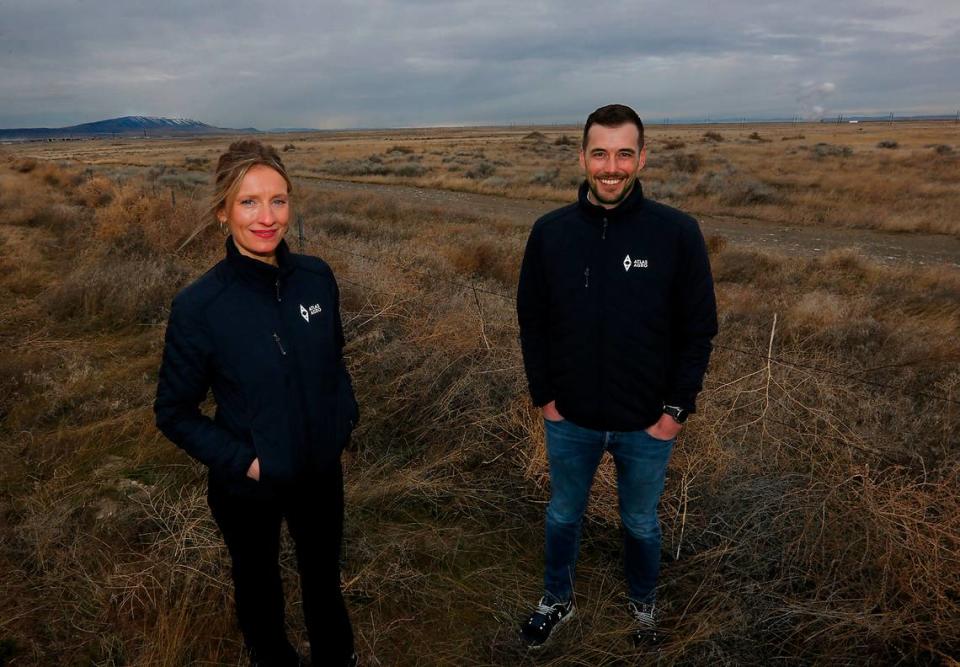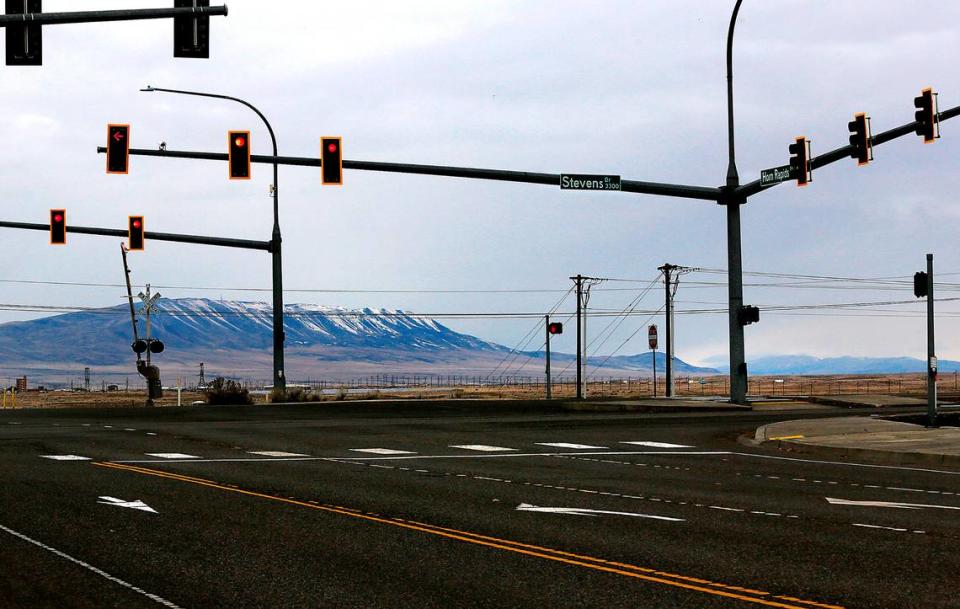$1B Richland fertilizer plant will need the power of 132K homes. Where will it come from?
The Tri-Cities scored a massive economic development win this month when a European fertilizer firm selected Richland for its first-ever plant to make carbon-free fertilizer out of air and water.
Atlas Agro’s vision for north Richland comes with an equally massive power requirement. It told Richland officials it needs up to 350 megawatts, or enough electricity to power the city three times over.
Atlas agreed to buy 150 acres at the Horn Rapids Industrial Park from the Port of Benton for its proposed $1.1 billion plant. The site is on land formerly owned by the Department of Energy, near the Pacific Northwest National Laboratory.
As billed, Atlas could turbocharge local efforts to build a green economy in the Tri-Cities that’s independent of federal spending on cleaning up the Hanford nuclear site.
Signing the purchase and sale agreement signals both parties believe the plant stands a good chance of succeeding. But it does not guarantee it will be built.
Atlas needs electricity to power electrolyzers to produce hydrogen and then ammonia to make nitrogen fertilizers. The process is based on existing synthesis technology, which Atlas said it has refined.

Need for power
Its electrical requirements translate to 1 1/2 to 3 times the power consumed by the entire city, said Clint Whitney, Richland’s energy services director. As the local energy utility, the city would be responsible for providing power to the fertilizer plant.
The company mentioned “new nuclear” as its power source, but has offered no details of what that means or how or where it will be generated.
The Bonneville Power Administration caps new large users at 10 megawatts. The federal marketing agency did not respond to a request for comment on the project.
Whitney stressed that BPA is not obligated to serve Atlas.
Energy Northwest, which generates electricity for BPA at the 1,200-megawatt nuclear plant north of Richland as well as other facilities, said it could not elaborate on its discussions with Atlas, but hinted at advanced nuclear reactors.
“We are energetically pursuing the deployment of a X-energy advanced reactor at the end of the decade,” Greg Cullen, vice president for energy services and development, told the Herald.
“Energy Northwest is actively engaged with potential utility and industrial customers on the feasibility of new nuclear technologies serving their energy needs,” he said.

Buying power
Whitney said there are three ways to meet Atlas’ requirements.
Atlas could contract to purchase power on the open market, where costs have soared.
Richland could contract to buy the power on the open market.
Atlas could apply for BPA’s expensive New Resource rate, currently more than twice its lowest Tier 1 rate.
Whitney said it is too early to identify a preferred option, but he said the city is committed to protecting existing customers.
For example, if the city entered a power contract to serve Atlas and the project didn’t move forward, it doesn’t want to be left responsible for the cost.
“That’s where the attorneys are going to come in and help us,” he said.
Sales agreement
Atlas and the port signed a 25-page purchase and sale agreement that spells out terms under which Atlas will buy property at the corner of Stevens Drive and Horn Rapids Road.
The agreement, released after the March 7 meeting, offers details that were not included in port commission’s original public discussion.
The contract indicates Atlas will need 280-330 megawatts of continuous power to produce fertilizers without emitting carbon.
The lower figure reflects adding an energy storage facility to the power package.
A single megawatt can power 400-900 homes, according to the Nuclear Regulatory Commission. At the low end, Atlas is seeking enough power to run 132,000 homes, more than the Tri-Cities combined.
The details
Atlas, operating as Pacific Green Fertilizer Corp., has until Jan 31, 2026 to complete the “pre-development” steps needed to construct the facility, which would have a combined footprint of 1 million square feet.
The land: Atlas will pay nearly $9.1 million for 150 acres within a 260-acre port-owned property. The price is $1.39 per square foot for 6.5 million square feet.
Atlas can buy additional land for $2.09 per square foot. It was required to place $400,000 in an earnest money account with Chicago Title Insurance Co. in Kennewick.
Atlas has one year to confirm the property suits its needs and the project is feasible. After that, the deposit is nonrefundable.
The purchase agreement automatically terminates if Atlas fails to notify the port the property has been approved for development.
Rail access: The port agreed to work with Atlas to extend a rail spur from the nearby Southern Connection, aka the port-owned railway that connects Richland’s industrial areas to the BNSF Railway and UP networks in Kennewick.
Atlas will pay for rail construction. The project will generate 10 rail car trips per day, 25 truck trips and required “reliable” access to barge ports. The Port of Benton operates a barge facility near the Triton Sail Park.
It is chiefly used to move decommissioned nuclear reactors to the Hanford site.
Jobs: Officials said Atlas will support 1,000 jobs in the community, but the plant itself will employ 160 people, including 20 professionals, 100 technical/skilled workers, 20 semi-skilled workers and 20 unskilled workers. The construction project will require hundreds of workers.
Why Richland?
Dan Holmes, executive director for North America, said it is eager to meet demand for no-carbon fertilizers from agriculture, which is a significant contributor of carbon emissions.
Taking carbon out of fertilizers helps the industry, he told the port commission.
Richland is envisioned as the first plant in a network of such plants built to serve local agriculture around the country.
Atlas scouted sites in Washington and Oregon. But Richland was the clear winner thanks to support from the city of Richland, Tri-City Development Council (TRIDEC) and Washington Department of Commerce.
“This is the place where the project most likely will be built,” he said.
The state of Washington is eager to see it succeed, said Brian Young, the Department of Commerce’s clean technology sector lead.
The state agency aided Atlas with the site selection process and visited the company’s leaders in Oslo when Gov. Jay Inslee visited the region in 2022.
He said fertilizers are generally produced in the region where its is consumed. A billion-dollar effort to drive down carbon intensity “got us very excited,” he said.
Young said the state has not offered direct incentives to land the project. The state has incentives around manufacturing and sales tax deferrals on equipment and it can help with some of the federal funds available for clean tech innovators.
He praised local officials at the city, port and TRIDEC for rallying to support Atlas.
“It’s never a done deal until it is built,” he added.

